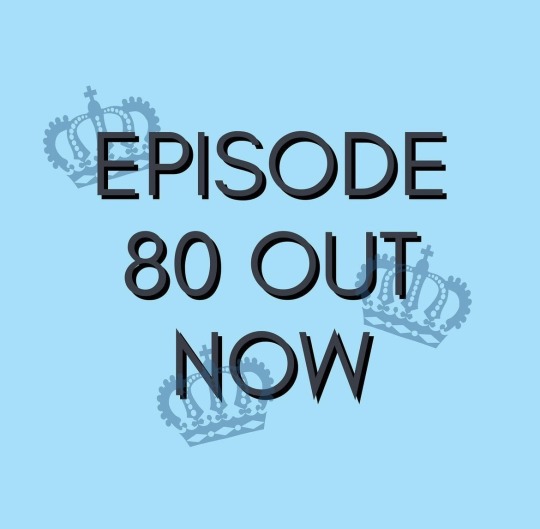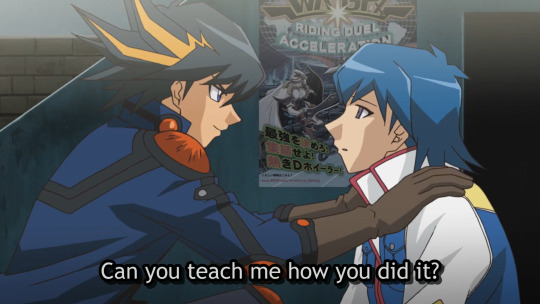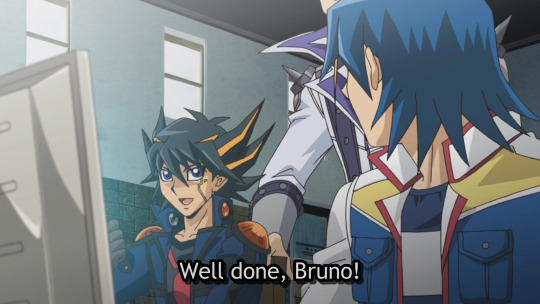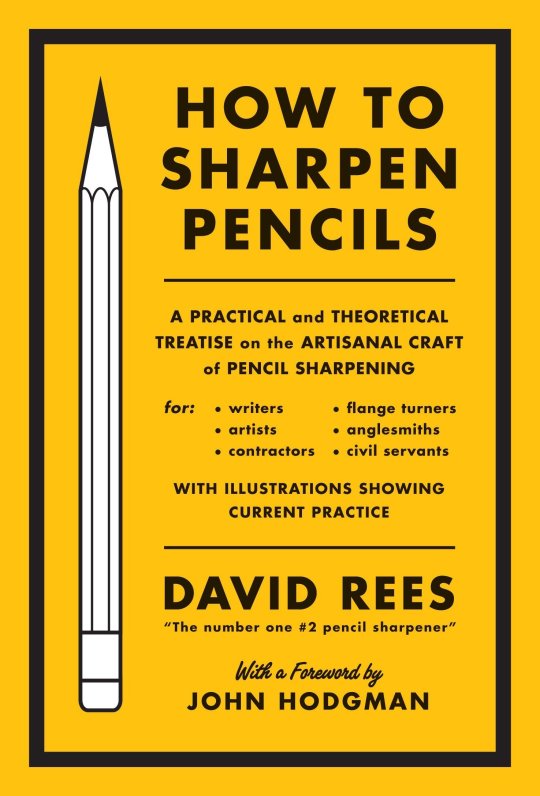#episode 80
Text

Our little blorbos (Dorian please come back)
#bells hells fanart#episode 80#cr c3#cr c3 fanart#critical role fanart#fearne calloway#cr orym#ashton greymoore#laudna fanart#imogen fanart#imogen temult#cr fcg#Fcg fanart#redraw#matt mercer#chetney pock o'pea#cr chetney#ashton fanart#fearne fanart
1K notes
·
View notes
Text
Posting Goku pictures day (#3)

HES SO SHORT 😭
37 notes
·
View notes
Text
Lingthusiasm Episode 80: Word Magic
The magical kind of spell and the written kind of spell are historically linked. This reflects how saying a word can change the state of the world, both in terms of fictional magic spells that set things on fire or make them invisible, and in terms of the real-world linguistic concept of performative utterances, which let us agree to contracts, place bets, establish names, and otherwise alter the fabric of our relationships.
In this episode, your hosts Gretchen McCulloch and Lauren Gawne get enthusiastic about word magic! We talk about how the word magic systems are set up differently in three recent fantasy books we like: Babel by R.F. Kuang, Carry On by Rainbow Rowell, and the Scholomance series by Naomi Novik. We also talk about linguistic performatives: why saying “I do” in a movie doesn’t make you married, aka Felicity Conditions, aka an excellent drag name; performativity as applied to gender (yup, Judith Butler got it from linguistics); the “hereby” test; and how technology changes what counts as a performative.
Read the transcript here.
Announcements:
People often ask us to recommend interesting books about linguistics that don't assume prior knowledge of linguistics, so we've come up with a list of 12 books that we personally recommend, including both nonfiction and fiction books with linguistically interesting elements! Get this list of our top 12 linguistics books by signing up for our free email list. Email subscribers get an email once a month when there's a new episode of Lingthusiasm, and this month existing subscribers will see a link to our linguistics books list! If you find this any time in the future, you'll get the books list in the confirmation email after you sign up.
In this month’s bonus episode, we get excited about the results of the 2022 Lingthusiasm Survey. We talk about synesthesia fomo, whether people respond differently to kiki/bouba depending on whether they're aware of them as a meme, complicating the "where is a frown?" map, the plural of emoji, and more! Plus, we mentioned swearing in this episode? Yeah, we’ve got bonus episodes about that too.
Join us on Patreon now to get access to this and 70+ other bonus episodes, as well as access to the Lingthusiasm Discord server where you can chat with other language nerds! Our patrons let us keep making the main episodes free for everyone and we really appreciate every level of support.
Here are the links mentioned in the episode:
Sign up to our newsletter and get our list of 12 linguistically interesting books!
Etymonline entry for ‘spell’
Etymonline entry for ‘glamour’
‘Babel’ by R. F. Kuang on Goodreads
‘Carry On - The Simon Snow series’ by Rainbow Rowell on Goodreads
‘A Deadly Education - The Scholomance Series’ by Naomi Novik on Goodreads
Lingthusiasm episode ‘Cool things about scales and implicature’
Wikipedia entry for ‘performative utterances’
Superlinguo post on ‘I do’ and performatives in weddings
Government of Canada post on ‘hereby’
All Things Linguistics post on performatives
Judith Butler Wikipedia entry
‘Gender Trouble: Feminism and the Subversion of Identity’ by Judith Butler on Goodreads
‘Universality and specificity in infant-directed speech: Pitch modifications as a function of infant age and sex in a tonal and non-tonal language’ by C. Kitamura et al
Tambiah 1968 on word magic
Lingthusiasm bonus episodes on swearing:
‘Real swear words vs pseudo swears’
‘The grammar of swearing’
‘What makes a swear word feel sweary? A &⩐#⦫& Liveshow’
You can listen to this episode via Lingthusiasm.com, Soundcloud, RSS, Apple Podcasts/iTunes, Spotify, YouTube, or wherever you get your podcasts. You can also download an mp3 via the Soundcloud page for offline listening.
To receive an email whenever a new episode drops, sign up for the Lingthusiasm mailing list.
You can help keep Lingthusiasm ad-free, get access to bonus content, and more perks by supporting us on Patreon.
Lingthusiasm is on Twitter, Instagram, Facebook, Mastodon, and Tumblr. Email us at contact [at] lingthusiasm [dot] com
Gretchen is on Twitter as @GretchenAMcC and blogs at All Things Linguistic.
Lauren is on Twitter as @superlinguo and blogs at Superlinguo.
Lingthusiasm is created by Gretchen McCulloch and Lauren Gawne. Our senior producer is Claire Gawne, our production editor is Sarah Dopierala, and our production assistant is Martha Tsutsui Billins. Our music is ‘Ancient City’ by The Triangles.
This episode of Lingthusiasm is made available under a Creative Commons Attribution Non-Commercial Share Alike license (CC 4.0 BY-NC-SA).
#linguistics#lingthusiasm#language#episodes#podcast#episode 80#pragmatics#words#magic#simon snow#rainbow rowell#r.f. kuang#fantasy books#the scholomance#naomi novik#books#spells#performatives#felicity conditions#gender#gesture#SoundCloud
116 notes
·
View notes
Text












Lucy: thinking to herself Don’t be intimidated Lucy just try to imagine him in his underwear…
Lucy: (imagines Gray’s rippling abs and bulging biceps)
Lucy: OH NO HE'S HOT!!
#fairy tail#otp#graylu#gray x lucy#gray fullbuster#lucy heartfilia#episode 211#episode 80#episode 32#episode 72#episode 1#episode 125#episode 49#episode 256
16 notes
·
View notes
Text
This show is stressing me out!
Not dead, damn. And Sasha isn't coming back. That's a pity, I liked her.
Who is this?
Jurgen Leitner?! What? How did he get here?!
#the magnus archives#tma#live blogging#episode 80#the word “episode” has stopped looking like a word to me
8 notes
·
View notes
Text

This week, @princesscatherinemiddleton and @duchessofostergotlands recap our highs and lows from Prince William's recent visit to Singapore. And, in the third edition of our classic Mythbuster series, we tackle the story everyone's talking about: has Denmark's Crown Prince Frederik been caught cheating on his wife?
Episode 80 - “My source is The Dictionary” - on Spotify, Apple, Google Podcasts and Amazon!
#on heir#on heir podcast#episode 80#royals#royalty#royal fandom#british royal family#prince william#danish royal family#crown prince frederik
9 notes
·
View notes
Text
MIKE: You can’t keep tossing away months like this, you’ll be gone before you know it, you know?
MICHAEL: “Before I know it” would be a blessin’.
MIKE: No, no, no. Shut it down. Not engaging.
8 notes
·
View notes
Text
Just finished episode 80 and idk if this is a "watching the show differently because I'm now analysing it too"-thing or not but Bruno's introduction might be one of the few things about his character I'm willing to call bs on. Like.

Like.

LIKE.

The lightning speed at which the group immediately adopts this guy?????????????? Even the main signer group didn't assemble this quickly I'm????????? This is all in the same episode! And this is coming from someone who likes Bruno! Like yeah, I get that they needed to set this guy up as the new friend so he'd be devastating as one of the final antagonists later, but somehow this feels especially egregious this time? Like please, I'm begging you. I already like the character. You don't have to turn the entire episode into a thesis statement about why I Absolutely Need To Like This Character. I think Bruno would have also worked as the new friend without him conveniently being able to do the One Thing Yusei currently can't (which is also a little weird to me because seriously. Yusei, the guy who's the miracle genius with duel runners, can't figure out the duel runner thing suddenly??). I can't think of a single character that was pushed to be as likable as possible in such a short time after their debut. Even Yusei, the goddamned protagonist, felt like he had a more low-key introduction than this.
I am. Extremely bewildered.
#no shade to bruno though just questioning some writing choices here#bruno/antinomy#yugioh 5ds#orchid watches 5ds (again)#screencaps#episode 80
17 notes
·
View notes
Text
Guys, the sheriffs are tagging Desert Bluff citizens and that’s the most normal part of the episode
6 notes
·
View notes
Text
There’s nothing quite like trying to act normal in public while you are listening to Elias Bouchard beat a man to death.
#what a finale#i am still reeling#rip Jurgen Leitner#first time listenthrough#the magnus archives#episode 80#season 2#elias bouchard#jurgen leitner
5 notes
·
View notes
Text

Delilah skill issue
#i forgor#to post this#fearne calloway#critical role fanart#bells hells fanart#episode 80#cr c3 spoilers#Cr c3 e80#shard#delilah briarwood#feywild#fire powers#illustration#clip studio paint#yxllowbow#artwork#digital art#fanart#artists on tumblr#art wip#bg3 reference#fearne fanart
359 notes
·
View notes
Photo

How To Sharpen Pencils: A Practical and Theoretical Treatise on the Artisanal Craft of Pencil Sharpening by David Rees
2 notes
·
View notes
Text
Transcript Episode 80: Word Magic
This is a transcript for Lingthusiasm episode ‘Word Magic’. It’s been lightly edited for readability. Listen to the episode here or wherever you get your podcasts. Links to studies mentioned and further reading can be found on the episode show notes page.
[Music]
Gretchen: Welcome to Lingthusiasm, a podcast that’s enthusiastic about linguistics! I’m Gretchen McCulloch.
Lauren: I’m Lauren Gawne. Today, we’re getting enthusiastic about word magic. But first, people often ask us to recommend books about linguistics that don’t assume prior knowledge of linguistics, so we’ve come up with a list of 12 books plus a few bonuses, including both nonfiction as well as some fiction books with some linguistically interesting elements.
Gretchen: Social media’s in an interesting state of flux these days, which, as someone who studies online interaction, I find very interesting. However, not unrelated to that, we like to encourage people to sign up for emails from us in case everything else just melts down.
Lauren: You can get this list of 12 of our favourite linguistics books by signing up for our free email list by following the link in the show notes or going to lingthusiasm.com.
Gretchen: Our email subscribers also regularly get an email once a month when there’s a new episode of Lingthusiasm. This month you will see a link to our linguistics books list if you’re an existing subscriber. Otherwise, you will get the books list in the confirmation email after you sign up at any time even if you’re listening to this way in the future. Technology is very useful for things like this.
Lauren: Our most recent bonus episode was the 2022 listener survey results. If you’d like to know whether being aware of the kiki-bouba meme affects how people respond to the blobby shape and the pointy shape, as well as other results from our survey, you can go to patreon.com/lingthusiasm.
[Music]
Gretchen: Speaking of books, I’ve read some linguistically interesting books lately!
Lauren: We realised that a common thread between some of the books we’ve been reading was this link of magic.
Gretchen: Specifically, I love the way that books about magic are also often really linguistically interesting because saying the word and casting the magic spell are so intertwined when it comes to our conception of how magic works. Actually, “magic spell” and “spelling a word” – etymologically, I’ve just look this up, and these have a common root.
Lauren: I have never thought about it, but that is, I guess, not surprising because spells are words.
Gretchen: Yeah, they’re both from Middle English “spel,” from Old English “spell,” which is a story, a saying, a tale, a history, a narrative, and related to other Germanic languages. By around the 1500s, there’s this magical link as well. Interestingly, and this is why it always pays to look up your etymologies, neither of them is related to “spell” as in “to work for a spell” or “to rest for a spell.” That is a totally different “spell.”
Lauren: Okay. This is why it’s good to check because I would’ve just assumed they were related. I am delighted that the writing-down-words “spell,” the language is older than the magic.
Gretchen: Well, reading and writing is also a kind of magic. It’s a way of preserving words as they’re written down.
Lauren: I also seem to remember that “grammar” and “glamour” are related etymologically as well.
Gretchen: That is true. “Glamour” comes through Scottish. I first encountered this in another book, Susan Cooper’s The Dark is Rising where you have this magical “Book of Gramarye,” which you read and learn about all of these interesting things, some of which is where the stars are, which is this very rooted kind of magic, and some of which is how to make things blow up or go on fire or these other types of magical things.
Lauren: Definitely a very interesting grammar book. Maybe slightly different to the grammar books that we read in the non-magical world.
Gretchen: It does give me an over-inflated idea of what my copy of the Cambridge Grammar of the English Language is gonna teach me how to do.
Lauren: But this relationship between language and spell casting and magic and fantasy means that it’s not that surprising that, as well as a link between language and magic and spells in the three books that we’re looking at today, there’s also a link of educational settings – people at school or university learning how to do magic through language.
Gretchen: The first book that we wanna talk about is Babel by R. F. Kuang, which is this really interesting book that’s set in a fantasy Oxford setting where the characters are going to school, learning how to do this type of magic. The magic there is embedded on silver bars. The premise is, is that on either side of the silver bar, you engrave a word, and those two words are in different languages. They mean something very, very, very similar but not identical. It’s the slight difference in the meaning, the impossibility of translation – this book has so much translation theory that’s just very cool.
Lauren: There’re parts of this book where the professor is teaching them translation theory, and I’m like, “This is a lecture that I would have sat through,” maybe with slightly less 18th-19th Century, like, professor, but actually not that different.
Gretchen: This idea that true translation is always gonna be a tiny bit different means that when you have two words on either side of the silver bar, the tension between the meanings and the little bit of meaning that escapes translation is the part that creates the magic, which is such a cool idea.
Lauren: I like that R. F. Kuang really takes the time to tease out what those translational differences are.
Gretchen: The first example in the book is a bar that has on one side “triacle,” which is from French but I think got borrowed into Old English, and on the other side, the Modern English word “treacle,” which is not as familiar to North Americans, but it’s a sort of a molasses-like thing that’s very common in British fantasy novels and also real-life Brits.
Lauren: I always think of it as an ingredient in a baked sweet pudding.
Gretchen: I dunno if I have the baked sweet pudding category of item, but I think of a treacle tart. But the meaning of “triacle” in French is an antidote for a poison or venom, or a medicine for drawing out or neutralising a poison. In English, of course, it’s just like, “Here’s this nice, sweet syrup,” and the antidote is also supposed to be quite sweet, I guess, but it’s the tension between these meanings where one of them means “antidote” and the other one doesn’t that makes this bar able to neutralise poisons or infections. Of course, thinking of examples like this and the possibility of translation made me think, “What would I do if I was trying to come up with a bar that had an interesting translation pair on it?” Do you have one that you’d do, Lauren?
Lauren: I have been thinking about this ever since I read Babel, and I think, to throw back to our scales and implicature episode, that I would have a silver bar that had the English word “hot” and the Nepali word “tato” because Nepali has two different words for “hot,” and one is specifically for hot liquids or beverages. So, outside when it’s warm, it’s “garmi,” but when my tea is hot, it’s “tato.” Hopefully, having the silver bar means that my tea will never cool down when I put it down and forget about it for 30 minutes.
Gretchen: I mean, all of these connections seem very obvious when they were in the pages of the book, but this makes me wonder if the difference between the Nepali word and the English word is that it applies to a liquid specifically. Maybe it would make things into liquids? I feel like I’d like to test this magical system out a little bit empirically.
Lauren: I do remember there were some very funny situations – or highly dangerous situations – where an attempted friction in the translation has led to not quite the intended consequences.
Gretchen: From a linguistic world building perspective, something else that’s very important in Babel is that the characters need to have deep knowledge of the language in order to have the feeling of this translation tension that’s held in their minds which makes the magic work.
Lauren: So, I couldn’t get away with using or creating that “treacle/triacle” combination because I’m not a French speaker.
Gretchen: I speak French relatively well, but I’ve just read the definition of “triacle” in a dictionary and been like, “Oh, okay, that makes sense,” but I don’t actually know that intimately through my own experience, so I wouldn’t be able to hold that in mind.
Lauren: There’s a really, I think, quite distressing plot point – and I should say, this book’s subtitle is “Babe
Lauren: Or the Necessity of Violence,” so it does give you a sense that this is quite a dark and heavy book about the realities of colonisation and the British Empire. There is one character who, to me, is a really tragic figure who’s taken away from one of the languages he speaks very early on in his life. He still speaks it, but he doesn’t speak it really in a way that he feels really confident and immersed in that knowledge. That affects his ability to do this translation magic.
Gretchen: The whole theme of the book itself is, okay, well, these English-speaking magicians have mined through French and Latin and some of the more readily available languages to them and come up with most of the spells that are possible from those. They’ve gone out searching through the rest of empire to basically plunder children who speak other languages and say, “Hey, you, you can come up with some cool magic based on Chinese” or based on another language that we don’t have access to. This, you know, has some predictably complicated, violent consequences.
Lauren: This need to have deep knowledge of and really lived the words that you’re using in doing your magic reminds me of Carry On by Rainbow Rowell, which has a slightly different magic system and is part of a set of three books: Carry On, Wayward Son, and Any Way the Wind Blows.
Gretchen: In these, all the magic is in English, but there’s still this connection to having the deep, intimate knowledge of the language and, particularly, the language as it exists in community. Some of the phrases that are used as magical phrases are things like, “Out, out damned spot,” which can clean things, or “Into thin air,” which can make something disappear, or “Some like it hot,” which can melt something. At one point, the headmaster in the book explains that the magical students need to keep living in regular society because the idioms that these spells are formed of lose their power if people stop knowing what they mean.
Lauren: You have to be really up with your pop culture references and your pithy one-liners to be able to do magic in this world.
Gretchen: You can get new spells out of a new pop culture reference that people start recognising or a new song lyric, things like “Carry on” and “Any way the wind blows” are from the Queen song “Bohemian Rhapsody,” and this can create new phrases that can accomplish magic based on other people being able to recognise them. That’s language as embodied in a whole community of people not just in the mind of one person, which is the different vision for where language is.
Lauren: I like to think that the reason that people love to crack out “Bohemian Rhapsody” at the end of a night of karaoke is because the magical witches and wizards of this world have created this as a thing we do to keep “Bohemian Rhapsody” alive so that they can still keep making spells like “Carry on” or “Any way the wind blows.”
Gretchen: Head canon accepted. I buy this. But I think there is a certain magic to everyone knowing the words to a song because you have this connection with people that you might not otherwise know very well that, like, here’s this thing that you can all participate in.
Lauren: In some ways, memes really do feel like magic, whether it’s a spoken meme like a phrase or a picture meme. When you get it and someone else gets it, it just feels really satisfying.
Gretchen: Yeah. Rather than magic coming from this point of tension between two meanings, it’s also magic coming from this point of connection of someone else knowing what something means. That’s very different to the third book or series that’s on our list, which is A Deadly Education and its sequels in the Scholomance series: The Last Graduate and the Golden Enclaves, by Naomi Novik.
Lauren: “School” here is a little less stay-in-the-real-world than Rainbow Rowell’s Carry On books in that the school is automated. There are no teachers. The students are just trapped in this magic school that has some Hunger Games vibes sometimes.
Gretchen: The premise of this series is that the world is very dangerous. There are terrifying magical creatures all over the world, and they especially go after young, magical humans between the ages of I think it’s around 11 and 17, sort of teenagers.
Lauren: “Mmm, magically tasty.”
Gretchen: “Mmm, yummy, yummy, young magical humans.” For their own protection, they’re put behind the walls of this school, and yet, occasionally, magical beings will still get into the school and try to attack the students. Hopefully, the students will manage to defend themselves against these beasts but, you know, who knows. It’s sort of terrifying. The school themself – or the school “itself,” I dunno –
Lauren: The school definitely has a personality.
Gretchen: The school itself is trying to teach them by recommending books and throwing books at them and doing other types of – they do a language lab thing where they have recorders, and they put headphones on, and they try to learn bits of languages so they can understand these spell books which are in all sorts of languages.
Lauren: You have to be careful because as soon as you start looking at a French book or maybe glance at a French poem, the school will be like, “You are gonna learn French.” It may just serve you French classes for a semester.
Gretchen: More dangerously, it may just send you spell books in French, and you’re like, “Uh, oh, excuse me, I’ve really just read one verb, and you now think I can just do spells in French. I can’t even say these words yet.”
Lauren: It’s definitely very dangerous for those of us who have a habit of browsing the grammars of different languages for fun.
Gretchen: Oh, no. Yeah, I saw this, and I was like, “This would be very dangerous for me personally.” But the fun thing from a linguistic perspective is that it’s also not just constrained to contemporary languages. Our point of view character, whose name is “El Higgins” – “El” short for “Galadriel” – is learning Old English and even wanders into the shelves of Proto-Indo-European spells, which definitely made me perk up linguistically.
Lauren: I got very excited about this because there was no world in which a shelf of Proto-Indo-European books exists because this is a language that is the common ancestor language of most of the languages of Europe all the way through to Southeast Asia. Nepali is also part of this family. Proto-Indo-European was spoken thousands of years ago by a nomadic group. We have somewhat pieced it together through our best guesses going backwards through time, but there are no records of Proto-Indo-European.
Gretchen: We’ve pieced together a couple hundred words, out of which you can construct a paragraph or two as long as you wanna talk about sheep. It’s not something where we have a lot of knowledge to be able to write entire books but, you know, if this magical school has existed for thousands and thousands of years, then maybe it does have some books that are in this language that we don’t know actually know anything about.
Lauren: Unfortunately, El just wanders straight past that shelf, and we never find out.
Gretchen: Sigh. But there’s also something that’s very different about the conception of language from this book – and it’s part of the themes of the book – which is the idea of language as trap or language as sufficiency where you don’t need to know the language in any great degree of fluency as long as you can perform the literal bits of the spell itself and put enough effort into doing so, that’s what’s gonna create the magical effect, which is, again, a third conception of how language is.
Lauren: I had a real throwback to a high school Italian poetry recital competition that my school made us do where most of the students had no idea what they were reciting, but some of them could recite it very impressively.
Gretchen: You see this with singers sometimes, too. Like, opera singers will sometimes learn a song in a particular language they don’t necessarily speak and just learn, okay, here’s how to pronounce it, and here’s the general vibe of this is a love song, or this is tragic, or this is angry, and I’m just gonna perform this very beautifully but not necessarily have any ability to carry on a conversation or even say, “Hello/Goodbye,” in that language.
Lauren: I feel like having a knowledge of the International Phonetic Alphabet could potentially give you an edge in the Scholomance school world.
Gretchen: Something that I find really interesting when considering all three of these series, all three of these worlds as a whole, is that each of them has to have a theory of what it means to know a language in order for their system of magic, what it means to cast a spell, to work.
Lauren: In all three of these series, there’re times where spells do not work in ways that are catastrophic for our heroes.
Gretchen: And having those constraints and limitations on what language can do and what magic can do is also part of what makes the plots interesting. I guess it’s also funny to me that given that “spell” and “spell” – you know, “spell” as in writing and “spell” as in magic – have the same root that writing down the words in none of these cases is the power. It’s speaking it out loud that’s the thing that ignites them working.
Lauren: This makes me very pleased because there’re so many languages in our world that don’t have a writing system whether that’s because they’re one of the many languages that just have an oral tradition or signed languages don’t have a stable writing system that’s generally used by the whole population of signers.
Gretchen: Right. But they could still be performed and enacted and presumably made spells of, although we don’t see it in any of these particular books what that would actually look like to be able to sign a spell.
Lauren: There’s no reason based on the mechanisms that are used that they couldn’t be used to make spells.
Gretchen: There are ways of performing and embodying words in real life that also let real words have certain types of magic, at least, or I guess effects on the situation that exists in a world.
Lauren: Gretchen, words can change reality.
Gretchen: That’s not just like, “Oh, if I describe the beauty of the sky, that makes me notice it more,” although that’s true, too, but there’s a specific type of phrases or of utterances that saying them changes something about the word. If I say, “I promise that I will give you $5.00,” the world is now different from before I made that promise.
Lauren: Yeah. Because I’m gonna get $5.00.
Gretchen: You’re welcome.
Lauren: I think the canonical example that gets rolled out when we talk about performatives a lot is if you go to a wedding – and this is one of my favourite reasons to go to a wedding – is that moment where the two people are asked, “Do you take this person to be your lawfully wedded wife,” they will say, “I do.” You have to say that. It is a legal part of a Western marriage ceremony. Different marriage traditions have different traditions, but in a Western marriage ceremony, you have to say, “I do,” to make that legally binding.
Gretchen: In front of witnesses.
Lauren: In front of witnesses.
Gretchen: And you sign some sort of marriage contract afterwards, which is the written part of that performance, but it’s the saying it out loud in front of witnesses that also makes that thing the case.
Lauren: It’s the person officiating the ceremony that says, “I declare you wife and wife,” or “I declare you husband and wife,” that makes the ceremony entirely legally bond. And again, they have to say these very specific words in a very specific way depending on the legal jurisdiction in which you’re getting married.
Gretchen: This gets us to something which is part of the saying the words. It’s not enough for you to just say on the podcast like, “I declare these two people wife and wife” because you are not currently officiating a wedding. The power is not granted to you. You don’t have two people standing in front of you saying, “I do.” That’s not a power that you have right now even though you can say the little phrase. Or if you’re in a movie of a wedding, you have not necessarily legally married the two people who are getting married in the movie.
Lauren: Oops, those two actors are now accidentally married irl because they got married in a movie.
Gretchen: I feel like this has maybe happened at some point. Part of the saying a particular phrase is also saying that phrase in particular contexts or under a particular set of conditions, which makes it possible for that to happen.
Lauren: There’s a technical term for this that doesn’t require you to remember it for this to work, but I think it’s just worth talking about. These conditions are known as “felicity conditions.” I just think this is a very excellent drag name. If you’re looking for a drag name, can I recommend “Felicity Conditions.”
Gretchen: New, good linguistics drag name. I think it’s certainly better than “Grammaticality Judgement,” which doesn’t quite have the same ring to it.
Lauren: I just imagine Felicity Conditions walking around looking fabulous trying to get everyone married.
Gretchen: Other types of things that you can say that have an effect on the world are things like naming things. “I name this ship the Queen Elizabeth.”
Lauren: I can’t. I have tried to. I have tried to walk up to so many ships with so many bottles of champaign, and the felicity conditions are never met because I do not have this power.
Gretchen: But you do have the power to name two children.
Lauren: Yes, I have named children. You don’t always have to say out loud. We did have to sign some paperwork. Writing has taken over from speaking in some legal domains.
Gretchen: But if you name a pet, still, that’s something that’s just sort of your say so that’s generally not – you know, you go to the vet, and they say, “What’s the name of this pet?”, and you just say like, “Max” or “Fido” or something.
Lauren: “Felicity Conditions.”
Gretchen: “My cat, Felicity Conditions.”
Lauren: “It’s Felix the cat – short for ‘Felicity Conditions.’”
Gretchen: [Laughs] Oh my god. And nicknames are an example where the nickname exists because people use it. It’s not anywhere on a written document, but you can say, “This is what I wanna be called.” Many online names are names because people just call you that. It’s you saying, “This is my name,” and other people saying, “Yeah, we’ll call you that,” that makes the name exist more so than the paperwork.
Lauren: Bets are also a form of performative language. Any time you make a wager and say, “I bet that.”
Gretchen: I am going to bet you that someone will actually name their cat “Felicity Conditions” and tell us about it as a result of this episode.
Lauren: Okay. And if they don’t, that is how I’m gonna get my $5.00 out of you.
Gretchen: If they do, then you have to buy me ice cream. If they don’t, then I buy you ice cream.
Lauren: Okay. It seems like we all win in this situation. We’ve now created a condition in the world that did not exist before this conversation, which is that we have an ice cream-based bet between us.
Gretchen: It is up to you, the listeners, as to who has to buy who ice cream.
Lauren: In this situation, the conditions are that both of us have the authority to speak for ourselves. Both of us have the authority to purchase ice cream should be bet be completed satisfactorily. We’ve met the conditions for this to be a proper performative interaction. We’ve changed the world.
Gretchen: If only we knew it was so easy to change the world. These types of statements that change the world are known as “performative utterances.” They were first described by a linguist, a philosopher, named J. L. Austin in 1962. Some of the examples are also a little bit 1962. One of them is “I bet you sixpence it will rain tomorrow.” You’re like, “Oh, sixpence, all right.”
Lauren: I don’t think we can meet that because I don’t think I have access to sixpence.
Gretchen: I don’t know if sixpences exist anymore because when British currency underwent decimalisation, now they have six new pennies, but it’s not a sixpence coin.
Lauren: I could probably find a sixpence coin, but it wouldn’t mean a lot to transact that bet.
Gretchen: You could buy it on eBay or something, but yeah, it wouldn’t necessarily have that effect on the world.
Lauren: “I give and bequeath my watch to my brother,” as though watches are the kind of things that are very important to keep in a will and testament.
Gretchen: Another fun example of these types of performative utterances – voting. You can say, “I vote for so-and-so,” “I vote for Felicity Conditions as the winner of this drag race.” Before the secret ballot was invented, you actually voted by going up to somebody who was recording the votes and saying, “Here’s who I vote for,” and declaring it.
Lauren: Hmm. Again, this interesting transition between a spoken performative utterance and moving to performing your intention through writing.
Gretchen: Another really fun – well, another less-fun type of performative utterance is “declare war.”
Lauren: Yes, less fun.
Gretchen: But it’s still a type of performative. One country has to officially declare themselves to be in a state of war. It’s not enough to merely do some fighting. There’s a legal state that countries are in when they say, “This is officially war.”
Lauren: In terms of felicity conditions, there are a whole set of international regulations and conditions and contexts around how one does that. Since I’m not the leader of a nation state, that is not available to me, which is fine. I have no intention of declaring war on anyone.
Gretchen: I cannot simply declare war on Australia. That’s not how any of this works, thank goodness.
Lauren: No, thankfully.
Gretchen: In more innocuous kinds, you can say, “I would like to announce that this episode of Lingthusiasm is about performatives,” or “I hereby demonstrate a performative utterance.”
Lauren: That is nice. I also like that you’ve used the word “hereby” because in English that’s a pretty good little test for whether something is a performative or not.
Gretchen: Right. If you can put “hereby” into the sentence, you know, “I hereby promise,” or “I hereby name,” “I hereby vote for so-and-so.”
Lauren: “I hereby bet you.”
Gretchen: Right. Then it’s a type of performance because you’re doing it by saying it.
Lauren: Another context in which performatives and performativity is often discussed is around how people do gender, which is not necessarily just language.
Gretchen: This comes from Judith butler’s book Gender Trouble. They were actually inspired by the linguistics concept of performativity. It’s not just a stage or theatrical performance, but it’s because Butler had read Austin and was like, “Yeah, actually, gender is something that you do and that you make more gendered by continuing to do.”
Lauren: In some ways, every time a person reinforces a way of doing gender by doing something within that culture with gender, you are continuing to shape reality as well. That’s also part of how it’s inspired by performative utterances.
Gretchen: If you give someone a complement for being beautiful, and that person is a woman, then you are reassociating that link between “beautiful” as a gendered type of compliment. If you are complimenting someone who’s a woman, and you’re seeing them as a man, then that’s performing gender in a slightly different way of saying, “I wanna try to delink these things.”
Lauren: Every time you choose pink for a girl and blue for a boy, you’re continuing this Western focus on these colours being representative of these genders for babies even though these are relatively new ways of doing that. Those colours were flipped only a century or two ago.
Gretchen: It’s interesting to see how gender is something that we receive from other peoples’ performances, but it’s also something we participate in and keep reinforcing by ourselves doing it, and so it’s performed.
Lauren: So, a slightly different sense of performativity but one that was really inspired by this earlier work from linguistics. The way that words, specifically, have power as performatives is something we can kind of see in the way we communicate with words and language and the way we communicate with gestures have slightly different weights in terms of their ability to be meaningful and powerful for people. My colleague, Kensy Cooperrider, has this really neat example of when you’re sitting in the emergency row of an aircraft, and the airstaff come and talk to you about how to operate the doors and whether you feel comfortable doing this in the case of an emergency, which I always take very seriously, and they tell you to take it very seriously, and at the end of this, they say, “Do you agree to do this? If you don’t, we can move you.” You have to say, “Yes.” A nod is not sufficiently performative of your acceptance of this role in case of the emergency that statistically almost never manifests but you have to take very seriously as a possibility every time you fly.
Gretchen: They need specifically to say this particular thing because you’re entering into a type of contract with them.
Lauren: In the context of at home, “Would you like a coffee,” a nod is a sufficient consent to consuming coffee. In this context, it’s a much more serious context, and the seriousness promotes this need to have words rather than just a gesture or nod to confirm your agreement.
Gretchen: I sometimes think about this in terms of how technology has also shaped how we perform certain types of things because there’s a thing that people often do in texting where you’re performing a particular type of action. Let’s say your friend is having a hard day, and you send them a text about it, whether you say something like, “I wish I could give you a hug right now,” or “Giving you a hug,” or just sort of like, “*hugs you*” as narrating the action that you’re doing, all of these are not quite the same as doing a physical hug, but they’re ways of making it more like a real hug or not or making it more vivid or more, yeah, closer to the physical thing.
Lauren: One of the things we’ve been coming back to is this tension between spoken language having a lot of power and written language not necessarily always having that same power to create whether it’s fictional-world magic or real-world magic. It’s really interesting. In some cultures, different emphasis is put on writing. Increasingly in Western culture with the centrality of writing and the prevalence of literacy, you see that signatures are increasingly more important than a verbal agreement. It’s not the saying, “I give my brother my watch,” that’s important, it’s the writing it down in a will and signing it in a way that meets the conditions, which comes from that older verbal tradition but has moved into writing returning to dominance as the central way of making it happen.
Gretchen: Before writing was the dominant technology, you would say something out loud in front of witnesses, and then those witnesses would be the people who were instantiating the contract of “Okay, these people have agreed. I’ve seen it.” And then you have the witnesses signing it to say, “I have seen this person do this. This has been witnessed.” As technology continues, you also have this phenomenon of a “wet signature.”
Lauren: What’s a “wet signature”?
Gretchen: It sounds kind of gross.
Lauren: I don’t want one.
Gretchen: This is a retronym for the conventional kind of signature where the ink of the pen is wet compared to a digital signature.
Lauren: Which is not wet because it’s digital ink not real ink. Oh, so I do have a wet signature. It’s when I sign something with a pen as opposed to signing a PDF.
Gretchen: Right. The original idea behind signing something with a pen is that your signature is related to your handwriting, and no one else should be able to write exactly the same way as you and you can compare the signature that purports to be from you with your actual signature and be like, “Look, this person doesn’t know how I sign my name.” But in the digital context, if you have an image of someone’s signature, you could just put it on another digital document, and it’s just sort of there as part of this artefact of things that we have agreed to accept is the form of a contract but no longer actually requires the person who’s signing it to be the person who has that. I have a copy of my digital signature that I just keep using. I don’t create it new each time.
Lauren: But each time you are putting it on a document, that becomes the performance of agreeing to the terms of the document.
Gretchen: Exactly. And an oath – swearing an oath – you know, “I solemnly swear to tell the truth,” or “I swear that this is, in fact, what I have seen,” or “This is what I saw,” that’s also related to a performative. You know, “I hereby swear that this is what happened last night,” and that’s part of this contract thing that’s a performative.
Lauren: Oaths are also related to curses in the non-magical sense. If you curse someone or if you curse using swear language, you are creating a sentiment about whatever you’re talking about.
Gretchen: Swearing or using other types of taboo language, those are words that change the state of the world because, compared to using a more neutral equivalent, they are a way of saying, “I am the type of person who uses this highly emotively charged language compared to a more neutral synonym that I could be using.”
Lauren: This is the reason that we don’t swear on main episodes of the podcast because we know the effect that it can have.
Gretchen: Although, if you do want to hear us swear, we have done a couple bonus episodes about swearing that are locked up nice and safe where kids can’t get them. It’s something that does exist, which is an interesting pragmatic choice that we made when we started Lingthusiasm, which was we want this podcast to be something that people could feel comfortable assigning to high school students or playing around their children and not feeling like they have to pre-screen episodes to see what we’re talking about, but also, swearing is part of language, and it’s interesting to analyse. That’s why we put those as bonus episodes.
Lauren: Knowing the real-world effect that language can have on people is why we’re very happy to use swears in a bonus episode, but we do draw the line at using slur words.
Gretchen: Right. Because a swear word is emotionally charged but ultimately refers to things that are relatively neutral or egalitarian, whereas a slur that refers to a particular person and their membership of a group and denigrates them for that is something that, you know, is still linguistically interesting but is something that we don’t want to take on the pragmatic connotations of we’re the kind of people who say that about people. Something that’s interesting for me is the way that some words have become more taboo and some words have become less taboo. The F-word has become less taboo even in my lifespan, whereas slurs that refer to particular groups of people, when I was young, some of them weren’t as taboo as they are now. That’s also us as collective humans changing what these particular words mean when they’re performed. It’s not something that exists in a vacuum.
Lauren: Even though I can’t make a teacup that keeps my tea permanently hot, thinking about performatives, thinking about oaths and curses and bets, is a really good way to remember that language does have the magic to change the world.
[Music]
Lauren: For more Lingthusiasm and links to all the things mentioned in this episode, go to lingthusiasm.com. You can listen to us on Apple Podcasts, Google Podcasts, Spotify, SoundCloud, YouTube, or wherever else you get your podcasts. You can follow @lingthusiasm on Twitter, Mastodon, Facebook, Instagram, and Tumblr. You can get IPA posters, “Not Judging Your Grammar” stickers, and baby clothes with “Not Judging Your Language, Just Acquiring it,” as well as other Lingthusiasm merch at lingthusiasm.com/merch. I tweet and blog as Superlinguo.
Gretchen: I can be found as @GretchenAMcC on Twitter, my blog is AllThingsLinguistic.com, and my book about internet language is called Because Internet. Have you listened to all the Lingthusiasm episodes, and you wish there were more? You can get access to an extra Lingthusiasm episode to listen to every month plus our entire archive of bonus episodes to listen to right now at patreon.com/lingthusiasm or follow the links from our website. Have you gotten really into linguistics, and you wish you had more people to talk with about it? Patrons can also get access to our Discord chatroom to talk with other linguistics fans. Plus, all patrons help keep the show ad-free. Recent bonus topics include the results of our listener survey, our liveshow about language and gender with Kirby Conrod, and our whole list of older bonus episodes about swearing. Can’t afford to pledge? That’s okay, too. We also really appreciate it if you can recommend Lingthusiasm to anyone in your life who’s curious about language. Also, remember to sign up for our free email newsletter if you wanna get our list of linguistics-related books – both fiction and nonfiction.
Lauren: Lingthusiasm is created and produced by Gretchen McCulloch and Lauren Gawne. Our Senior Producer is Claire Gawne, our Editorial Producer is Sarah Dopierala, and our Production Assistant is Martha Tsutsui-Billins. Our music is “Ancient City” by The Triangles.
Gretchen: Stay lingthusiastic!
[Music]

This work is licensed under a Creative Commons Attribution-NonCommercial-ShareAlike 4.0 International License.
#language#linguistics#lingthusiasm#transcripts#episode 80#pragmatics#words#magic#simon snow#rainbow rowell#r.f. kuang#babel#the scholomance#naomi novik#fantasy books#books#spells#performatives#felicity conditions#gender#gesture
21 notes
·
View notes
Text









screenshots of lucy blushing
episodes 50 49 rave master ova ova 3 memory days episode 50 episode 125 episode 38
#episode 32#episode 49#episode 50#rave master#OVA 3 Memory Days#episode 80#episode 125#lucy heartfilia#episode 38#lucy is way better than juvia
7 notes
·
View notes
Text
Michael is the "Distortion" or the "Spiral."That's interesting.
This man is saying a lot of stuff but...
Elias?! What?! What is he talking about?! I knew there was a reason I didn't trust that man!
Wait, he says Jon belongs to the Eye? The Beholding he calls it.
Not Sasha said something last episode something to the effect of "the eye of it's pupal" but I couldn't totally understand what she said. Is this what she...
Oh no. Elias, what are you gonna do here buddy...
Oh, okay. Well he's dead, I guess.
My man just had to have that cigarette, didn't he? Couldn't just let him say everything that needed to be said.
Oh shit, Martin and Tim are free... directly into a very bad scene.
It's 5am, I should really go to bed.
6 notes
·
View notes
Link
Gumby Adventures
Episode 80: Proxy Gumby
Original Video Upload: Just Some Random Person.
5 notes
·
View notes